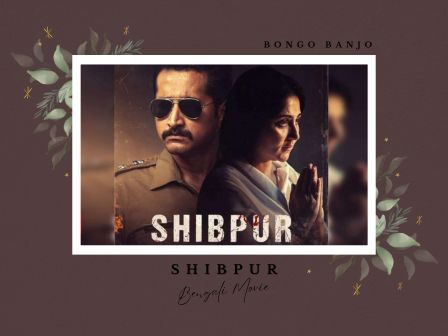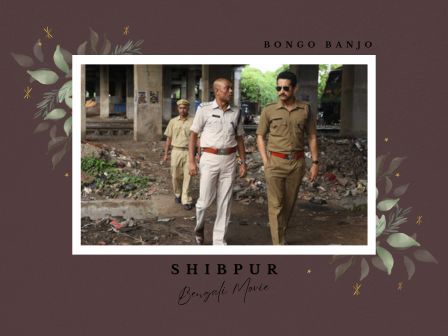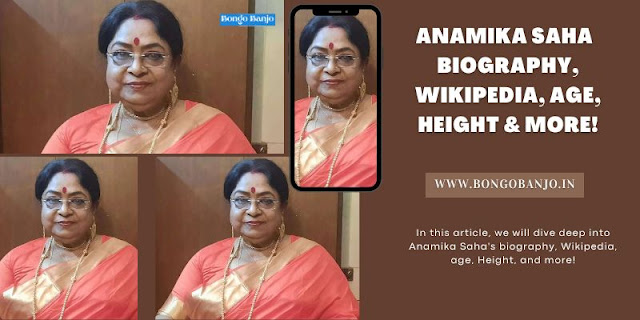Shibpur Bengali Movie Review!
Shibpur is a brutal gangster drama with a strong Bengali influence. Sadly, it is where the innovation of the movie starts and stops. A compelling gangster drama is presented by Parambrata Chatterjee and Swastika Mukherjee.
Story:
Aniruddha, a devout government official who was married to Mandira (Swastika Mukherjee), is assassinated in front of her in Shibpur after standing his ground against the demands of neighbourhood thug Nepal Bhattacharya (Rajatava Dutta).
She turns to opposition ganglord Tapan Barik (Kharaj Mukhopadhyay) for assistance after being let down by the police, government, and judiciary, and finally becomes a gangster in Shibpur.
Sultan Ahmed, a capable IPS officer, is dispatched by the chief minister (Sujan Mukhopadhyay) to the violent Shibpur to put an end to the carnage and restore calm.
Review:
Shibpur is a distinctive Bengali movie because of the topic and style it chooses. Gangster films have been produced all over the world.
Over the years, amazing gangster films have been produced by our very own Bollywood, like Gangs of Wasseypur, Mirzapur, and Satya to Company.
It is recognised that Ram Gopal Varma and Anurag Kashyap are experts in this field. However, Bengal does not produce many of these films.
Shibpur is a brutal gangster drama with a strong Bengali influence. Sadly, it is where the innovation of the movie starts and stops.
Shibpur may be summed up in three words: overwhelmingly competent acting, a weak plot, and cleverly displayed gore.
Numerous strong performers appear in the movie, and it is enjoyable to see them onscreen. With their unflappable performances, Swastika Mukherjee and Parambrata Chatterjee dominate the movie.
Mandira is the centre of this movie. Swastika gives the character life to the fullest. She commands the screen like a lioness, transforming from the sorrow of a widow to a vicious murderer.
However, Parambrata Chatterjee, who portrays both a young and an old Sultan Ahmed, is unstoppable on film.
On the screen, he is nimble, intelligent, and keen. He speaks with a diction that is completely appropriate for the role throughout. Watching him on a large Bengali screen is a delight.
Other than these two, Kharaj Mukhopadhyay is impossible to look away from. Tapan Barik's grotesque brutality is frightening, and Kharaj Mukhopadhyay gives an outstanding portrayal of this killer fishmonger-turned-gang boss.
Tapan's persona is just as cruel as Nepal Bhattacharya, played by Rajatava Dutta. However, he hides his muck behind a refined veneer thanks to his sharp dhoti, kurta, and landlord legacy. He is equally intelligent.
We are all surprised by Mamata Shankar's portrayal of Jele Bedini. She is only on the screen for a total of five minutes, yet in those few minutes, she surprises us all with a hitherto unseen persona.
She also seems uncannily genuine in the movie. The goon Kana and a dishonest local politician are two additional astounding characters.
Shibpur is rough, bloody, and not for the timid. The movie explores the gore and brutality that are common in gangster flicks without restraint.
The movie is expertly edited and wonderfully photographed. The creepy background soundtrack supports the story and makes the places feel authentic.
Tara Jwole and Jotobar Alo are two songs that are effectively employed in the movie. In the chaos of bloodshed, the other tunes are similarly calming. Because it is based on actual events, the conflicts, language, and people are not absurd.
Due to a weak plot and shoddy writing, the movie falls flat and lacks spirit. Two or three gangs are seen on television relentlessly murdering their rivals.
A narrative is what the course is missing. Their conflict is caused by the breaking of waggons and the delivery of iron to nearby enterprises.
However, there is little concern about describing what triggers one murder after another. The narrative is currently being told to a young reporter (Susmita Chatterjee) by the elderly and retired Sultan Ahmed.
His voice over may have aided in the narration by connecting the dots. It falls short in this regard. In the meantime, a delayed resolve and a foregone conclusion lengthen the movie by 15 minutes.
Verdict:
In the modern context of Bengali cinema, Shibpur is somewhat of an anomaly. It has been effective in eschewing any stereotypical Bengali elements to appeal to a wider audience.
It struggles, but work and boldness are the keys to its success. It is special and worth seeing.













%20Biography,%20Age,%20Career,%20Wife,%20Networth.jpg)
